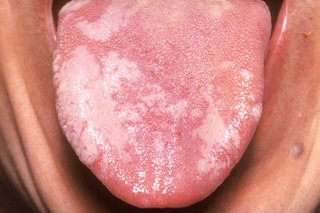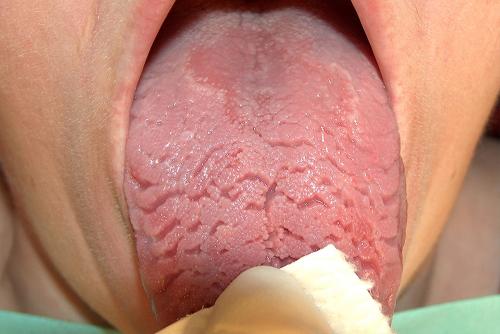
Most people overlook their tongue, but it’s actually a powerful reflection of what’s going on inside your body. If you’ve noticed unusual coatings, colors, or textures, it’s time to pay attention. Here are four common tongue appearances and what they might be trying to tell you.
1. White-coated tongue
A thick white coating may suggest poor oral hygiene, fungal infections like oral thrush, or even a weakened immune system. It can also be linked to dehydration or excessive consumption of dairy or sugar.
What to do:
- Brush your tongue gently every morning using a tongue scraper or soft toothbrush
- Rinse your mouth with salt water or diluted hydrogen peroxide
- Stay well hydrated throughout the day
- Limit sugar and dairy intake
- Consult a doctor if the coating persists for more than a week
2. Dry, peeling tongue

This appearance can signal vitamin deficiencies, especially B vitamins and iron. It may also indicate a reaction to irritants in toothpaste or mouthwash, or a mild allergy.
What to do:
- Include more leafy greens, whole grains, and legumes in your diet
- Switch to a non-irritating, alcohol-free mouthwash
- Drink enough water and avoid overly spicy or acidic foods
- Consider a multivitamin after consulting a healthcare provider
3. Cracked or fissured tongue

Visible cracks and deep grooves on the tongue could be a harmless condition called fissured tongue. However, it’s sometimes associated with conditions like psoriasis or dehydration.
What to do:
- Keep your mouth well hydrated
- Maintain good oral hygiene to avoid food debris getting stuck in the grooves
- Avoid spicy, salty, or acidic foods that can cause discomfort
- If the cracks become painful, consult a dentist
4. Smooth, pale tongue
A tongue that appears unusually smooth and pale might be a sign of iron-deficiency anemia or a lack of folic acid and vitamin B12. These deficiencies can reduce oxygen supply in the blood and affect overall energy levels.
What to do:
- Add iron-rich foods like spinach, red meat, lentils, and pumpkin seeds to your meals
- Eat foods high in vitamin B12, such as eggs, dairy, and fortified cereals
- A blood test can confirm deficiencies, and supplements may be needed under medical guidance
Final tip:
Your tongue is like a window into your internal health. If you notice persistent changes, it’s best to seek medical advice. Don’t ignore what your mouth is trying to tell you.




